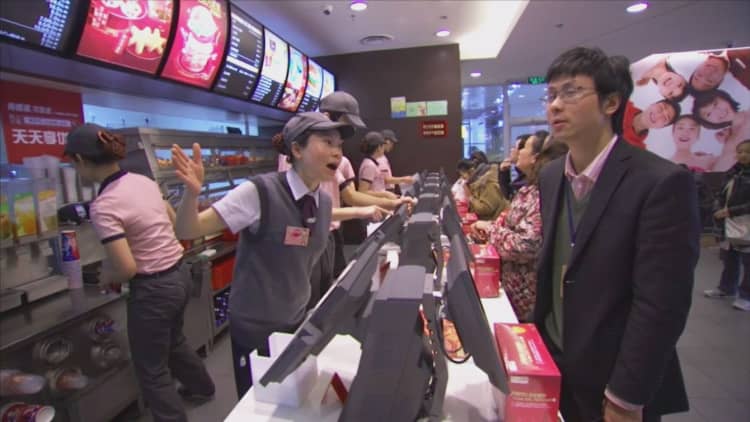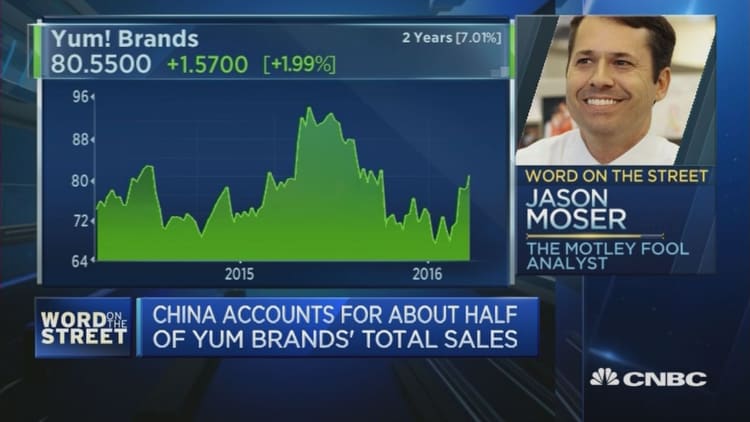
A consortium backed by China's sovereign wealth fund is in talks to buy Yum Brands' mainland unit, which includes KFC and Pizza Hut outlets across the country, Bloomberg News has reported.
The China Investment Corp-backed group, which includes private equity firms KKR & Co and Baring Private Equity Asia, was doing due diligence on the business, which could be valued at $7 billion to $8 billion, according to the report citing "people with knowledge of the matter."
Keith Meister, a Yum board member and activist investor, told CNBC's "Squawk Alley" that he doesn't know what inspired the valuation number.
"I think people probably confused the revenue of the business with the value of the business. That's the revenue. This is a business is worth a multiple of that in my opinion…," Meister said Tuesday.

"My sense is the Yum board will do the right thing. I will tell you as a large shareholder, the Yum board selling this business for $7 or $8 billion is not the right thing, and I don't think there's anyone who would disagree about that," Meister said.
Yum has more than 7,100 outlets in China and plans to open a further 600 this year, according to the fast food company's website.
In March, Reuters reported that KKR was interested in a minority stake in the Chinese business, as were China-based private equity firm Hopu Investments and Singapore's statement investment fund, Temasek. Also in March, The Wall Street Journal, which broke the news of the potential deal, reported that Baring Private Equity Asia was looking at the business.
To read the full Bloomberg report, click here
Yum said in October 2015 that it would separate its Chinese unit from the U.S. business in October 2015. The company had come under pressure from activist shareholder Keith Meister to reorganize its operations. The Chinese unit was the biggest contributor to Yum revenues last year, according to reports, but had been hit by a scandal over food safety at one of its meat suppliers.
On Tuesday a Yum spokesperson said the company would not comment on rumors or speculation.
"We continue to make good progress since we announced the transaction separating YUM and YUM China into two powerful, independent, focused growth companies," the spokesperson said.
China Investment Corp declined to comment on Bloomberg's report when contacted by CNBC.


